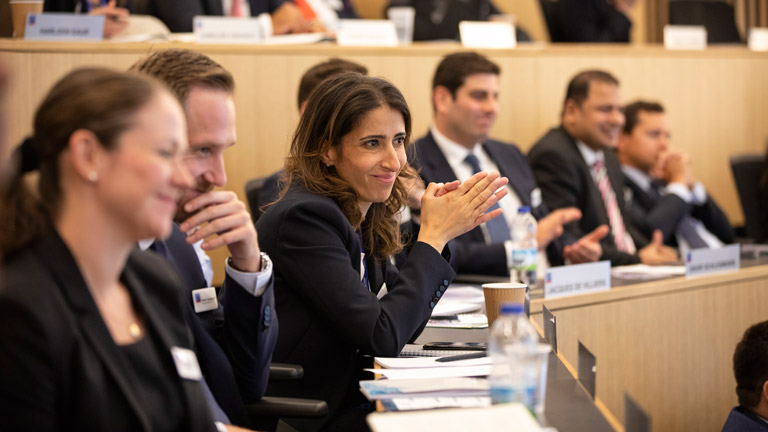In the data science community, we’re optimistic about the incredible potential for AI and other advanced technologies to empower people, widely benefit current and future generations, and work for the common good. AI therefore needs to be responsible: user-centred, unbiased and tested.
Sometimes I hear people say things like: ‘AI tools are going to take our jobs away.’ The question is, if all the work is going to be done by machines, what are humans going to do? Just as an example, a lawyer might think that data tools or AI machines will take over things like risk assessment, contract analytics or commercial negotiations. And where will that leave them? Today, if a lawyer has to read a 100-page contract, it might take three or four days. If that task was automated with the use of AI, lawyers could focus on high-priority tasks rather than wade through time-consuming documents. A machine can identify the most important clauses as medium risk or high risk. You can ignore the low-risk clauses and just concentrate on 15 clauses, then work out which might be done in a few hours rather than a few days. Machines aren’t here to take jobs away, but they will make your job easier by allowing you to focus on priority issues.
Data is all about garbage in, garbage out. If you’re feeding garbage data in, you’ll get garbage output. That’s where responsible AI comes in. If you feed the machine with the right data, it will provide you with the right results. Data science has shown its early success – evidenced in our social life, where people feel empowered as a result of using data science tools. These include mobile maps (Google Maps), GPS (live road mapping for autonomous vehicles), fitness and sleep management apps (MotionX, BodyMedia), goal management apps (Lift, Strides, Way Of Life), and personal finance apps (Emma, Yolt, Cleo). Olivia, for example, is a free financial assistant app that uses AI and behavioural economics to find patterns in how someone typically spends money, then uses those patterns to create strategies that help users spend less on the same things.


